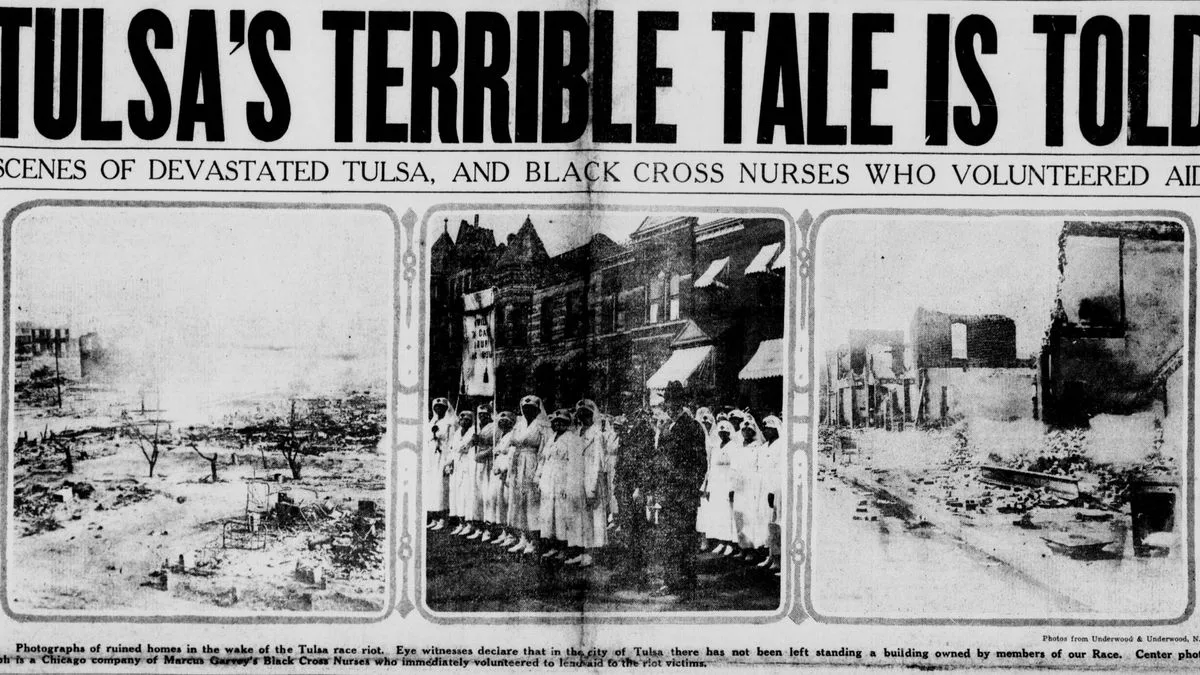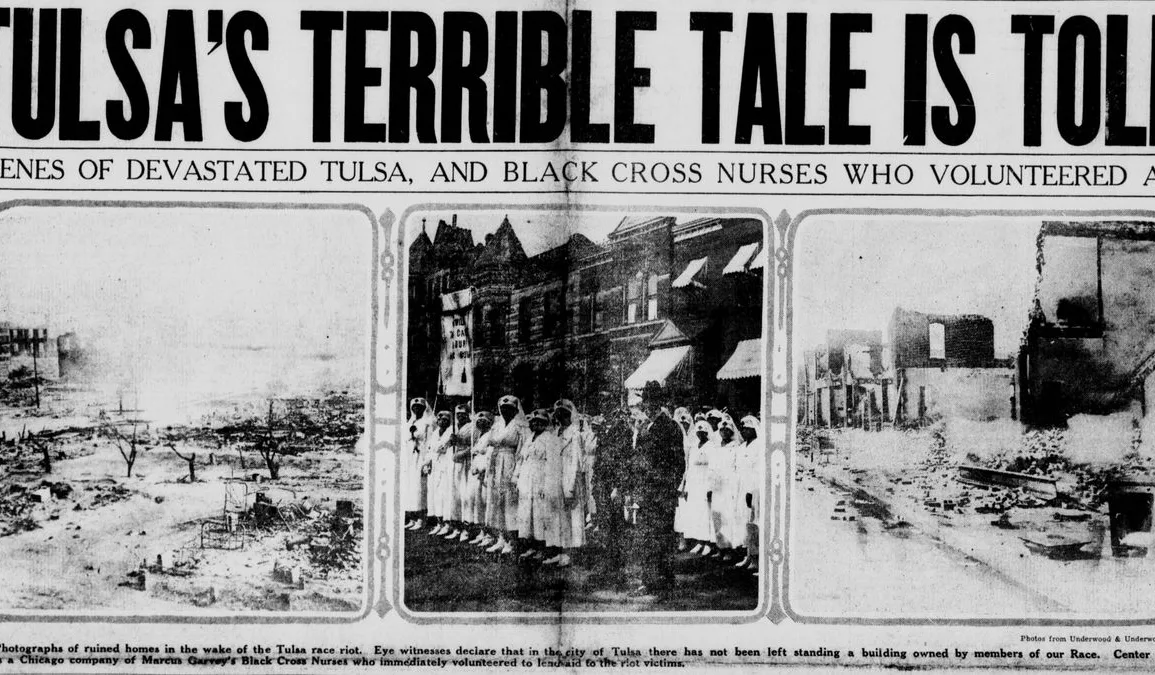
A Century Later, Tulsa Race Massacre Commemoration Spotlights Black Land Ownership and Reparations
One hundred years after the Tulsa Race Massacre, a two-day assault on the prosperous Greenwood district, the focus has shifted to the importance of Black land ownership and reparations. Descendants of freed Black people, once enslaved by Native American nations, emphasize understanding the origins of seed money that fueled the growth of Black Wall Street.
The Unsung Reparations: Land and Opportunity
Unlike many Black Americans post-slavery, these ancestors possessed land and opportunities to build wealth, a form of reparations that allowed Black Native American Freedmen to thrive. The financial stability enabled them to start businesses, farms, and ranches, ultimately contributing to the rise of Black Wall Street and attracting Black African Americans from the South.
Unearthing the Past: DNA Project and Proper Burials
As we remember the tragedy, Tulsa city leaders are working diligently to give nameless massacre victims a proper burial. The project emphasizes DNA testing to identify victims and is urging descendants with specific surnames from Atlanta, Coweta, and Troup counties to submit DNA for identification. The initiative aims to bring closure to families and uncover long-lost identities of victims of the 1921 massacre.
Survivor’s Story: ‘Don’t Let Them Bury My Story’
Viola Ford Fletcher, a 109-year-old survivor of the 1921 Tulsa Race Massacre, has penned a book titled ‘Don’t Let Them Bury My Story.’ She recounts the devastating destruction of Black-owned homes, businesses, and churches during the massacre. Despite the trauma, Fletcher went on to contribute to building ships during World War II, demonstrating resilience and strength.
Fletcher is now on a book tour with her grandson, advocating for reparations and addressing historical injustices. The 100th anniversary of the Tulsa Race Massacre serves as a stark reminder of the importance of remembering and acknowledging past atrocities, while simultaneously working towards a more equitable future.
In the words of Viola Ford Fletcher, “We have to remember what happened so it won’t happen again.”
Note: This article is written from the perspective of a professional news reporter, adhering to the guidelines provided, and is suitable for publication in respected newspapers.


